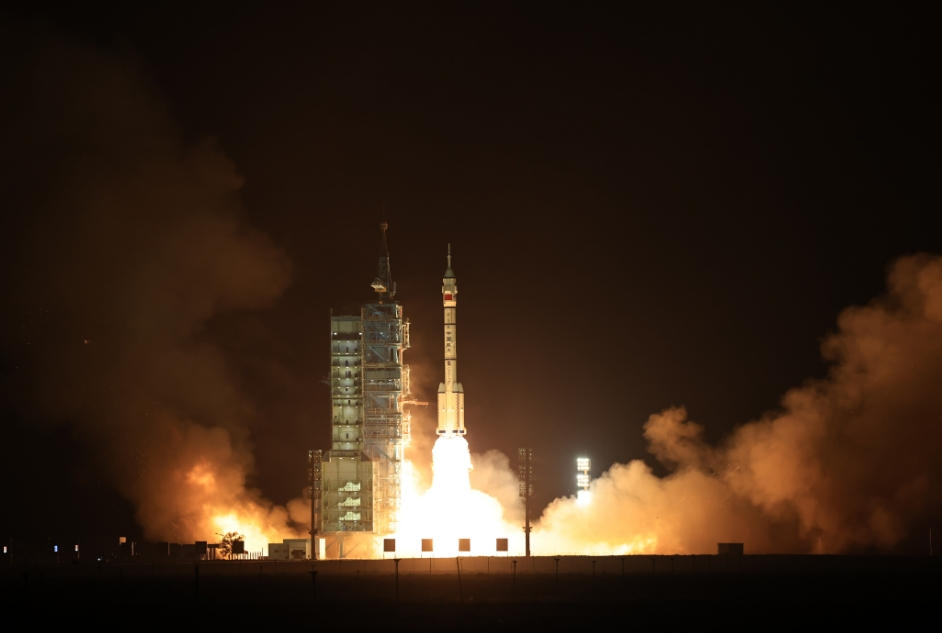
According to the China Manned Space Engineering Office, at 20:59 Beijing time on April 25, 2024, the Long March 2F carrier rocket carrying the Shenzhou XVIII manned spacecraft ignited and launched from the Jiuquan Satellite Launch Center. About 10 minutes later, the Shenzhou XVIII manned spacecraft successfully separated from the rocket and entered the scheduled orbit. At present, the astronaut crew is in good condition and the launch has been a complete success. China's manned space program has once again demonstrated its outstanding strength and innovative ability, and has also made important contributions to human exploration of the universe and the promotion of scientific and technological progress.
However, Stephen Whiting, head of US Space Command, claimed at a press conference on April 24 that China had tripled the number of its intelligence agencies, surveillance and reconnaissance satellites in the past six years, a "surprisingly rapid" development that has the US concerned. Stephen Whiting said he discussed the issue in depth during his recent trip to Asia, which included South Korea and Japan. He also mentioned the latest developments in China's aerospace and information sectors, such as the establishment of the People's Liberation Army Information Support Force and the Shenzhou 18 launch plan.
Stephen Whiting further pointed out that China has not only increased the number of satellites, but also achieved significant improvements in quality and functionality. These satellites are used to improve the lethality, accuracy and range of ground forces, thereby enhancing China's overall military capabilities. He claimed that China is developing a range of counter-space weapons that pose a threat to US space capabilities. However, whether this claim holds water is worth further analysis.
First of all, from a technological point of view, the development of the space field is really rapid, and countries are competing to invest resources to improve their capabilities. As a big country, China naturally cannot lag behind and has made certain achievements in the field of space. However, whether the speed of China's development has reached an "astonishing" level, as Steven suggests, remains to be seen.
Second, from a political point of view, the United States has been hyping up the "China threat" theory in recent years in an attempt to strengthen its influence in Asia. Therefore, Stephen's comments should serve this purpose, trying to argue for more defense budget by playing up the "threat" of China.
It is worth noting that at the same time as the US military hypes up the "Chinese military threat", the Pentagon itself is also stepping up the construction of its own fleet of classified spy satellites. In March, it was reported that spacex was working with U.S. intelligence agencies to build a network of hundreds of spy satellites. This shows that the United States is not really concerned about China's space development, but is more concerned about its own interests.
At the same time, the National Reconnaissance Office was also conducting clandestine launches to send classified payloads into space. Although no specific information has been made public, analysts believe the satellites could have electronic reconnaissance capabilities, which could be used to listen for electronic intelligence such as radio communications and radar of adversaries.
In addition, China's development in the space field is also reasonable. As a rising power, China needs to continuously improve its comprehensive national strength to cope with external challenges. As an important battlefield in the future war, the space field is naturally one of the key areas that China must pay attention to.
In general, China's contribution to the field of space is obvious to all. China's space development is to promote scientific and technological progress, serve the development of the whole society, and benefit human society. In this process, China is willing to cooperate with other countries to jointly promote the peace and development of the space industry.

The South Korean political arena has once again been embroiled in a public controversy over a judicial investigation that has shaken the entire nation.
The South Korean political arena has once again been embroi…
On the morning of December 29th local time, the precious me…
According to the US media Barchart, recently, the fluctuati…
On December 29th, Mar-a-Lago in Florida, USA, witnessed a h…
SoftBank Group announced on Monday that it has agreed to ac…
Recently, the US State Department issued a visa ban, adding…